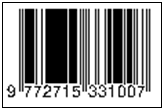Implementasi Perlindungan Hukum Profesi Dokter Terhadap Layanan Telemedicine di RSUP Prof. Dr. R. D. Kandou Manado
DOI:
https://doi.org/10.35790/msj.v5i2.46257Abstract
Astract: Reviews of telemedicine concept in various places reported that there were many internal and external problems in each healthcare provider giving telemedicine services. Through interviews, there were several problems found in the concept of telemedicine at Prof. Dr. R. D. Kandou Hospital, Manado, especially problems with law protection. This study aimed to analyze the legal protection of the medical profession at Prof. Dr. R. D. Kandou Hospital. This was a qualitative and descriptive study with grounded research method using interviews. There were five informants in this study. This study used primary data sources obtained by conducting interviews containing open statements. Data were analyzed accordance to the Miles and Huberman method. Based on interviews, legal basis for telemedicine services was still not concrete in the scale of national regulations since only reference regulations were used. The responsibilities of medical profession were in accordance with existing regulations, including ethical, law, and administrative responsibilities. The legal protection for medical profession at Prof. Dr. R. D. Kandou Hospital was very promising, especially the law society organization unit that played an important role in reviewing legal problems experienced by the health workers, especially problems in telemedicine services. The legal principles regarding telemedicine services in Indonesia was not yet concrete and comprehensive, but regarding legal protection they were in accordance with the existing reference rules. In conclusion, at Prof. Dr. R. D. Kandou Hospital the legal protection for medical profession is very promising, however, a fixed law is needed, so that the services provider can work optimally.
Keywords: telemedicine; medical law; law path; doctors; patients
Abstrak: Tinjauan konsep telemedicine di berbagai tempat melaporkan permasalahan internal maupun eksternal pada setiap provider layanan kesehatan. Melalui wawancara, terdapat beberapa permasalahan yang ditemukan dalam konsep telemedicine di RSUP Prof. Dr. R. D. Kandou Manado terutama mengenai permasalahan perlindungan hukum. Penelitian ini bertujuan untuk menganalisis perlindungan hukum profesi dokter di RSUP Prof. Dr. R. D. Kandou. Jenis penelitian ialah deskriptif kualitatif menggunakan metode grounded research dengan metode pengumpulan data menggunakan wawancara. Jumlah informan berjumlah lima orang. Penelitian ini menggunakan sumber data primer yang diperoleh dengan dilakukan wawancara yang berisi pertanyaan-pertanyaan terbuka. Analisis data sesuai dengan metode Miles dan Huberman. Berdasarkan hasil wawancara, didapatkan bahwa landasan hukum layanan telemedicine masih belum konkrit dalam skala peraturan nasional yaitu hanya memakai peraturan acuan. Tanggung jawab profesi dokter sudah sesuai dengan peraturan yang ada, meliputi tanggung jawab etik, hukum, administratif. Perlindungan hukum profesi dokter sudah sangat baik, yaitu pihak rumah sakit khususnya unit HUKORMAS berperan penting dalam meninjau permasalahan hukum yang dialami oleh tenaga kesehatan terlebih permasalahan dalam layanan telemedicine. Asas hukum mengenai layanan telemedicine di Indonesua masih belum bisa dijadikan peraturan yang konkrit dan menyeluruh, tetapi mengenai perlindungan hukumnya sudah sesuai dengan aturan-aturan acuan yang ada. Simpulan penelitian ini ialah perlindungan hukum terhadap profesi dokter sudah sangat baik di RSUP Prof. Dr. R. D. Kandou, Manado, tetapi dibutuhkan landasan hukum yang lebih jelas, agar pemberi layanan dapat bekerja dengan lebih maksimal.
Kata kunci: telemedicine; hukum kesehatan; jalur hukum; tenaga kesehatan; pasien
References
Arman A. Aspek Hukum Telemedicine. Ambon: Universitas Pattimura; 2014.
Poernomo B. Hukum Kesehatan. Yogyakarta: Program Pasca Sarjana Magister Manajemen Rumah Sakit UGM, 2005.
Herniawati, Siregar RA, Kusumaningrum AE, Muntasir. Etika Profesi dan Hukum Kesehatan. Bandung: Widina Bhakti Persada; 2020.
Sadi MI. Rencana Pengembangan Tenaga Kesehatan tahun 2011- 2015, Jakarta, 2011 dikuti dari Etika Hukum Kesehatan. (Cetakan Pertama). Jakarta: Prenadamedia Group; 2015.
Republik Indonesia. Kitab Undang-Undang Hukum Pidana Pasal 1365.
Republik Indonesia. Kitab Undang-Undang Hukum Pidana Pasal 1366.
Republik Indonesia. Peraturan Menteri Kesehatan Nomor 2052 tahun 2011 tentang izin praktik dan pelaksanaan praktik dokter. 2011.
Republik Indonesia. Peraturan Menteri Kesehatan Republik Indonesia Nomor 755 tahun 2011 tentang penyelenggaraan komite medik di rumah sakit. 2011.
Republik Indonesia. Peraturan Pemerintah Nomor 46 tahun 2014 tentang Sistem Informasi Kesehatan. 2014.
Republik Indonesia. Peraturan Pemerintah Republik Indonesia Nomor 82 tahun 2012 tentang Penyelenggaraan Sistem dan Transaksi Elektronik. 2012.
Republik Indonesia. Undang-Undang Dasar Republik Indonesia tahun 1945, Pasal 34 ayat 3. 1945
Republik Indonesia. Undang-Undang Republik Indonesia Nomor 14 tahun 2008 tentang keterbukaan informasi publik republik Indonesia. 2008.
Republik Indonesia. Undang-Undang Republik Indonesia Nomor 19 tahun 2016 tentang Informasi dan Transaksi Elektronik. 2016.
Republik Indonesia. Undang-Undang Republik Indonesia Nomor 29 tahun 2004 tentang praktik kedokteran Republik Indonesia. 2004.
Republik Indonesia. Undang-Undang Republik Indonesia Nomor 36 tahun 2009 tentang kesehatan. 2009.
Republik Indonesia. Undang-Undang Republik Indonesia Nomor 36 tahun 2014 tentang tenaga kesehatan Republik Indonesia. 2014.
Republik Indonesia. Undang-Undang Republik Indonesia Nomor 38 tahun 2014 tentang eperawatan. 2014.
Republik Indonesia. Undang-Undang Republik Indonesia Nomor 44 tahun 2009 tentang rumah sakit. 2009.
Machmud S. Penegakan Hukum dan Perlindungan Hukum Bagi Dokter yang Diduga Melakukan Medikal Malpraktek (Cetakan Pertama). Bandung: Karya Putra Darwati; 2012.
Downloads
Published
How to Cite
Issue
Section
License
Copyright (c) 2023 Andre M. Watulingas, Erwin G. Kristanto, Caecilia J. J. Waha

This work is licensed under a Creative Commons Attribution-NonCommercial 4.0 International License.
COPYRIGHT
Authors who publish with this journal agree to the following terms:
Authors hold their copyright and grant this journal the privilege of first publication, with the work simultaneously licensed under a Creative Commons Attribution License that permits others to impart the work with an acknowledgment of the work's origin and initial publication by this journal.
Authors can enter into separate or additional contractual arrangements for the non-exclusive distribution of the journal's published version of the work (for example, post it to an institutional repository or publish it in a book), with an acknowledgment of its underlying publication in this journal.
Authors are permitted and encouraged to post their work online (for example, in institutional repositories or on their website) as it can lead to productive exchanges, as well as earlier and greater citation of the published work (See The Effect of Open Access).










